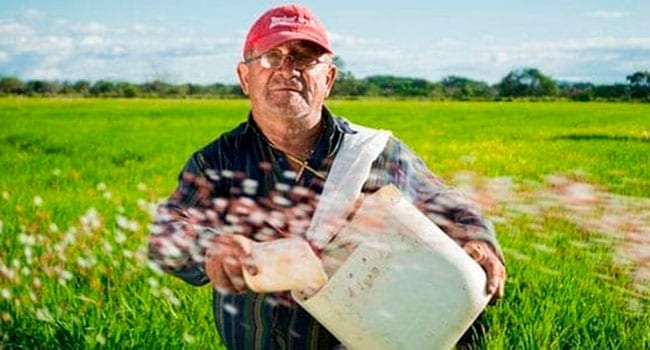 For years, farmers have tried to convey their message and explain the agriculture and rural lifestyle to the broader Canadian populace.
For years, farmers have tried to convey their message and explain the agriculture and rural lifestyle to the broader Canadian populace.
They’ve taken to social media with touching stories and countless messages, telling Canadians what things are like on the farm. Some have called this “agvocacy.”
But the new Canada’s Food Guide and recent policy decisions show that the rural-urban divide has never been greater.
Social media messages posted by farmers and farming groups are often met with a deluge of strong responses that seek to refute the information. Farm stories are most often overshadowed by similarly powerful messages from animal rights and environmental activists.
These activist groups have proved to be savvy communicators in the decades-long debate on genetically-modified organisms. Even if the science robustly supports the theory that GMOs are safe, doubts linger. A recent study suggested that the less people knew about GMOs, the more likely they were to be against them. The public discourse on GMOs is now highly polarized, which has not served communities well.
The same observation can apply to the issue of pesticides. Farmers are caught between science and farm-illiterate groups.
Despite their passion for the land and nature, many farmers have come out of these deliberations discouraged and emotionally wounded.
Farming is essential to our lifestyle and well-being. For a long time, farming has been the most trusted profession in the country. But it’s unclear whether Canadians are still willing to listen to farmers. The profession is trusted but not respected.
Many farmers are starting to realize this, as harsh and unfortunate as it is.
Less than two per cent of the Canadian population lives on a farm and the majority of Canadians have never even visited one. It’s a dimension of their lives they barely understand, even if they want to support it to a certain degree.
If food is affordable and convenient, urbanites are happy to support farmers. Some will go the extra mile to make a difference but they’re far from the majority.
Agricultural trade groups are active and committed, but their messages can only go so far. Individual farmers also try to connect with city folk. But beyond visits to farmers’ markets, you-picks and the impromptu encounters at fairs, opportunities for interaction between urban dwellers and farmers are infrequent.
On social media, farmers’ messages rarely reach beyond their own circles, rebounding in an echo chamber. Countless studies point to the ineffectiveness of social media to help farmers in influencing policy and more important, public opinion.
The relationship between virtual advocacy by farmers and real political and ideological change is speculative at best.
The GMO debate was apparently just the beginning. The new Canada’s Food Guide is an affront to what Canadian agriculture is all about. The food elites presented an ideal diet to Canadians but the connection between what’s prescribed in the guide and what farmers can deliver is far from clear.
Supported by nutritional science, the guide offers a target we should aim for. But many farmers wonder how Canada’s agricultural policy will help our country achieve its dietary goals.
But at least some communication strategies appear to be more effective.
Farm groups that partner with chefs, restaurant chains, grocers, celebrities and other such parties tend to have more success delivering their messages. A myriad of such initiatives across the country have successfully connected agriculture with cities. Farmers who use someone else to tell their story appear to have more influence, since third parties use language the average citizen can understand.
So if farmers and trade groups want a fighting chance, partnership is one path they should pursue.
The plant-based narrative, as well, is gaining traction simply because its tone and nuances are in tune with what most urbanites can appreciate.
But the nexus between agriculture and social media can get messy. The ketchup wars a few years ago are a good example. Loblaws customers took to social media to force a number of grocers to restock French’s ketchup. Consumers seemed not to know that the ketchup was manufactured in the U.S., while the company’s tomato paste was made in Leamington, Ont.
Agriculture remains a poorly understood, vague concept for many. Because the rural-urban divide is profoundly changing food politics in Canada, our policies lack depth and pragmatism.
Excluding farm lobby groups from a scientific process is one thing. Excluding them from a democratic process will only make things worse for everyone.
Dr. Sylvain Charlebois is senior director of the agri-food analytics lab and a professor in food distribution and policy at Dalhousie University.
Sylvain is a Troy Media Thought Leader. Why aren’t you?
For interview requests, click here. You must be a Troy Media Marketplace media subscriber to access our Sourcebook.
The views, opinions and positions expressed by columnists and contributors are the author’s alone. They do not inherently or expressly reflect the views, opinions and/or positions of our publication.


